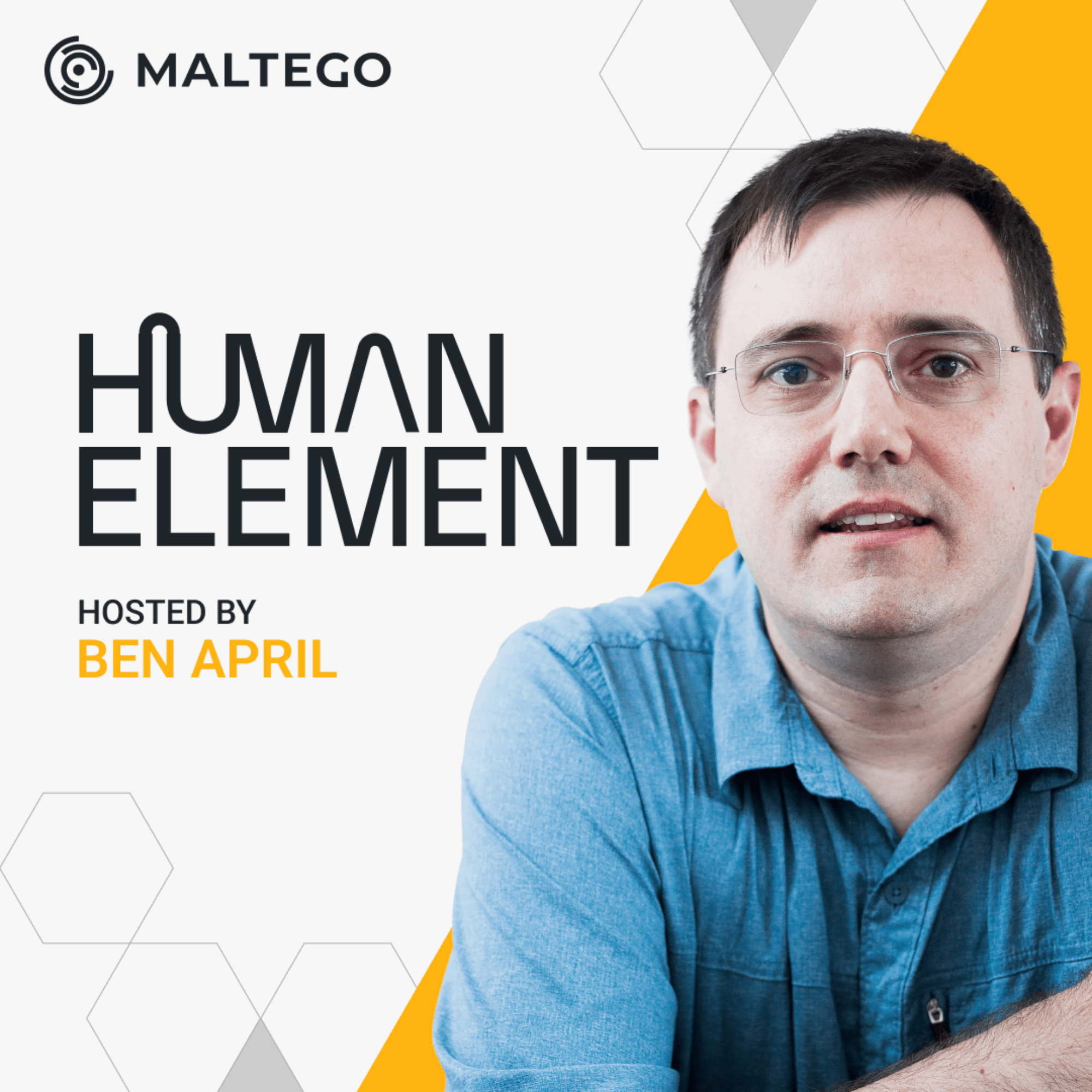Human Element

Human Element
Podcast Description
Welcome to Human Element, a podcast by Ben April, CTO at Maltego, focused on exploring the experiences and perspectives that shape cybersecurity leadership. In each episode, we speak with industry leaders to uncover the challenges they’ve encountered, the pivotal decisions that have influenced their careers, and the human dynamics that continue to shape the cybersecurity landscape beyond the technical domain.
Podcast Insights
Content Themes
The podcast delves into topics central to cybersecurity leadership, such as managing crises through a methodical approach, optimizing leadership effectiveness by distinguishing between technical work and management, and the importance of psychological safety within teams. Episodes contain specific discussions like Lance James' insights on slowing down during incidents for better decision-making and leveraging observational skills for enhancing team dynamics.

Welcome to Human Element, a podcast by Ben April, CTO at Maltego, focused on exploring the experiences and perspectives that shape cybersecurity leadership. In each episode, we speak with industry leaders to uncover the challenges they’ve encountered, the pivotal decisions that have influenced their careers, and the human dynamics that continue to shape the cybersecurity landscape beyond the technical domain.
The best security leaders don’t pretend to know everything; they build teams where admitting knowledge gaps becomes a competitive advantage. Alex Cox, Lead of Artificial Intelligence Working Group at LastPass, has spent two decades proving that vulnerability creates stronger security organizations than technical heroics ever could. His approach to leadership, forged through military service and high-stakes security incidents, prioritizes trust and psychological safety over individual expertise.
Ben and Alex discuss how commander’s intent from military planning translates to empowering security teams, why hiring for stress management capabilities matters more than technical credentials, and how AI is blurring the lines between individual contributor and management skills. Alex also shares his framework for spot feedback, his philosophy on when to lean on others’ expertise, and why the transition from IC to manager remains one of the hardest career shifts in security.
Stories We’re Telling Today:
- Applying military commander’s intent principles to security team management by defining mission outcomes
- Why hiring veterans and former law enforcement provides natural stress management capabilities
- The strategic value of deep IT backgrounds for security roles: natural pattern recognition for detecting anomalies and suspicious activity
- How AI is transforming individual contributor work to require management-level strategic thinking
- Building psychological safety by modeling that voicing disagreement or admitting overwhelm won’t result in retaliation
- Implementing spot feedback rather than formal mentorship structures, rather than waiting for scheduled reviews or structured programs
- Using tone calibration in text-based communication through emoji and message structure to prevent misunderstandings in abbreviated high-pressure exchanges across Slack and similar platforms
- Evaluating security technology decisions by understanding industry trajectory rather than just current needs
Too busy; didn’t listen:
- Build security teams around admitting knowledge gaps and leaning on others’ expertise, making vulnerability a leadership strength.
- There is value in prioritizing hiring veterans and former law enforcement for stress management capabilities over technical credentials.
- Using commander’s intent to create space for unexpected approaches and building trust through autonomy.
- AI is making management skills essential for individual contributors, as effective prompting requires the same strategic thinking and problem decomposition traditionally reserved for leading teams.
- Psychological safety matters more than technical expertise; teams that can voice disagreement or admit being underwater solve problems faster than those protecting leadership egos.
Skip to the Highlight of the episode:
[14.47-15:07] “That’s another favorite part of the job is to have a task and have one of my posts come back and go, “Hey, look at this!” And I’m like, “Man, I never thought of it that way. Or that’s a really unique approach.” And showing it off to some of the other managers, seeing if you can apply the approaches in different places. That’s a really fun part of managing a security team in general, because, like I said, it tends to produce people that think outside the box.”
Listen to more episodes:

Disclaimer
This podcast’s information is provided for general reference and was obtained from publicly accessible sources. The Podcast Collaborative neither produces nor verifies the content, accuracy, or suitability of this podcast. Views and opinions belong solely to the podcast creators and guests.
For a complete disclaimer, please see our Full Disclaimer on the archive page. The Podcast Collaborative bears no responsibility for the podcast’s themes, language, or overall content. Listener discretion is advised. Read our Terms of Use and Privacy Policy for more details.